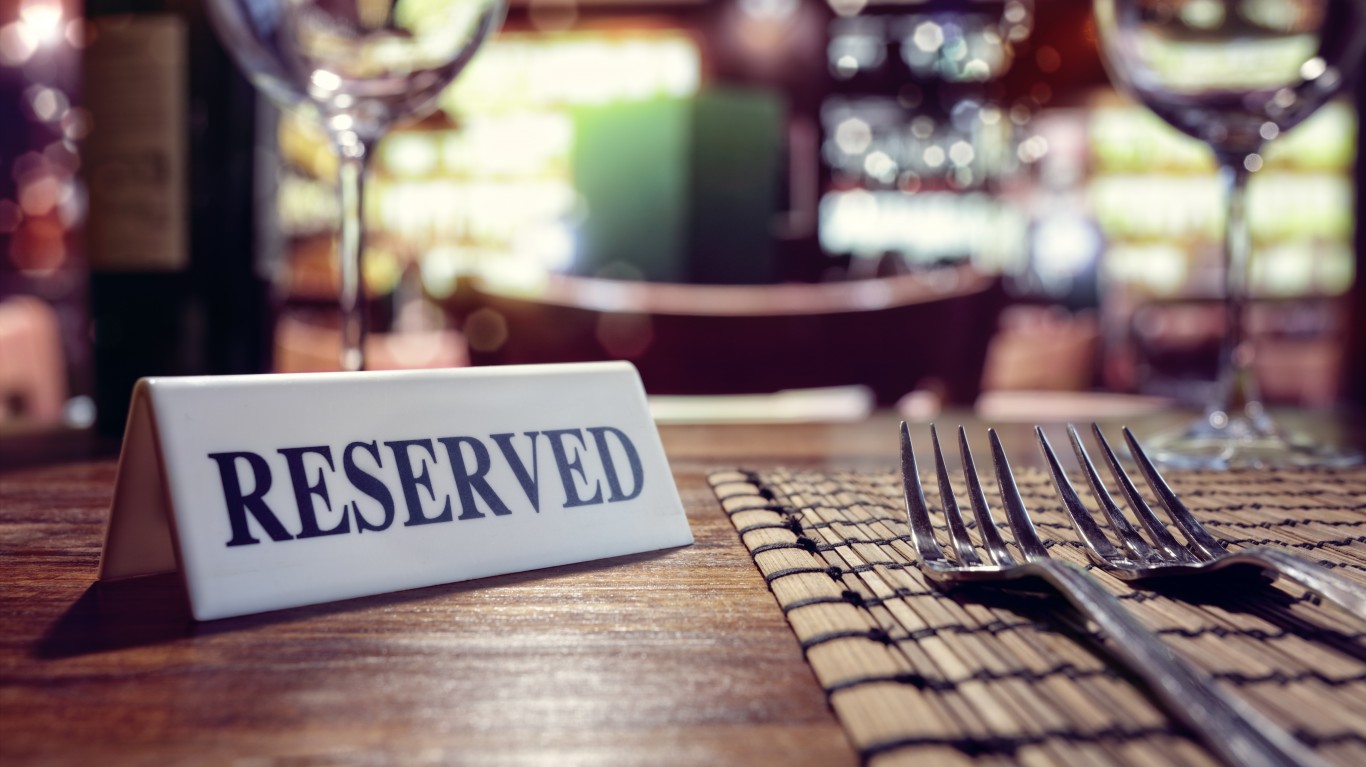
Why did these places shutter? A variety of reasons. In some cases, leases were up and were too expensive to renew. Other places closed because they just weren’t making it due to a variety of economic factors. Income inequality affects restaurants just like it impacts the citizenry at large. Very few of the approximately 650,000 eating places around the country can claim to be among the highest grossing restaurants in America.
In some cases, restaurants bowed out after their chefs or other key figures were accused of sexual harassment or worse. Sometimes, the chef-proprietors just got tired of being in the front lines (and on the cooking line) as they grew older. And unfortunately, some places (though none in this list) go out of business because they simply weren’t very good. Here are 16 signs you’re eating in a bad restaurant.
Restaurant closings can be sad for several reasons. Some have long been an important part of their communities, and their sudden absence seems to leave a hole in community life. Some open with great promise, to rave reviews, only to be defeated by poor business decisions. Still others brought new kinds of food to an experience-hungry clientele, building expectations, then dashing hopes.
Click here for the saddest restaurant closings of 2018.
Perhaps the saddest of all restaurant closings are those mentioned above whose chefs or restaurateurs have betrayed the trust of their employees, harassing and abusing them, making the continued existence of their establishments untenable. When restaurants like this close their doors, they not only impoverish the culinary landscape but also rob scores or even hundreds of employees of their livelihoods through no fault of their own. That these closings are deserved, doesn’t make them any less unfortunate. Let’s just hope that there won’t have to be many more examples this year.
To assemble our list of the saddest restaurant closings of 2018, 24/7 Wall St. consulted scores of restaurant news and review sites and local and regional magazine and newspaper sites from across the nation.
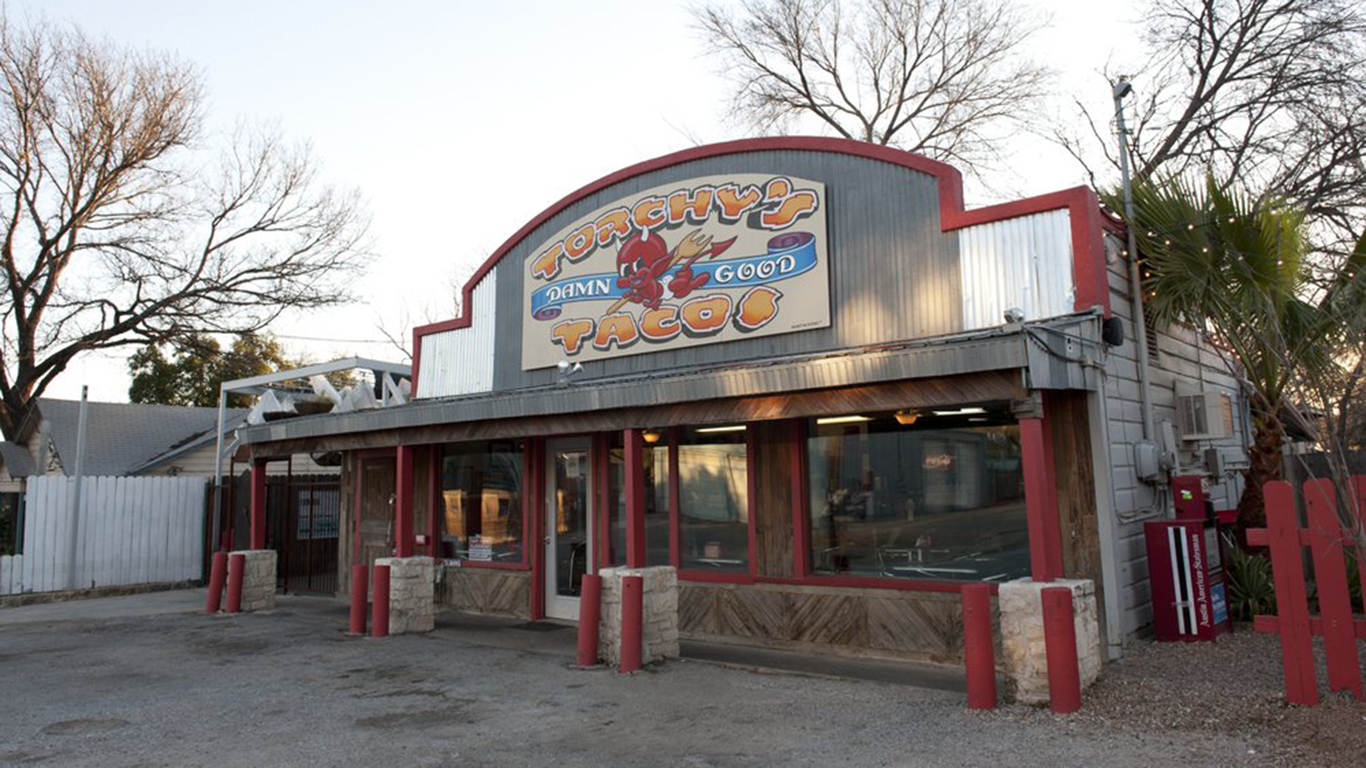
Austin, Texas: Torchy’s Tacos trailer
The hip Austin-based taco chain called Torchy’s, which now has about 80 brick-and-mortar locations in Texas, Oklahoma, Colorado, and Arkansas started life in 2006 in this modest trailer in South Austin’s food-truck agglomeration. “Our menu and commitment to food quality has outgrown a food trailer kitchen layout,” owner Michael Rypka told Eater in explaining his decision to cease operations at this location.
[in-text-ad]
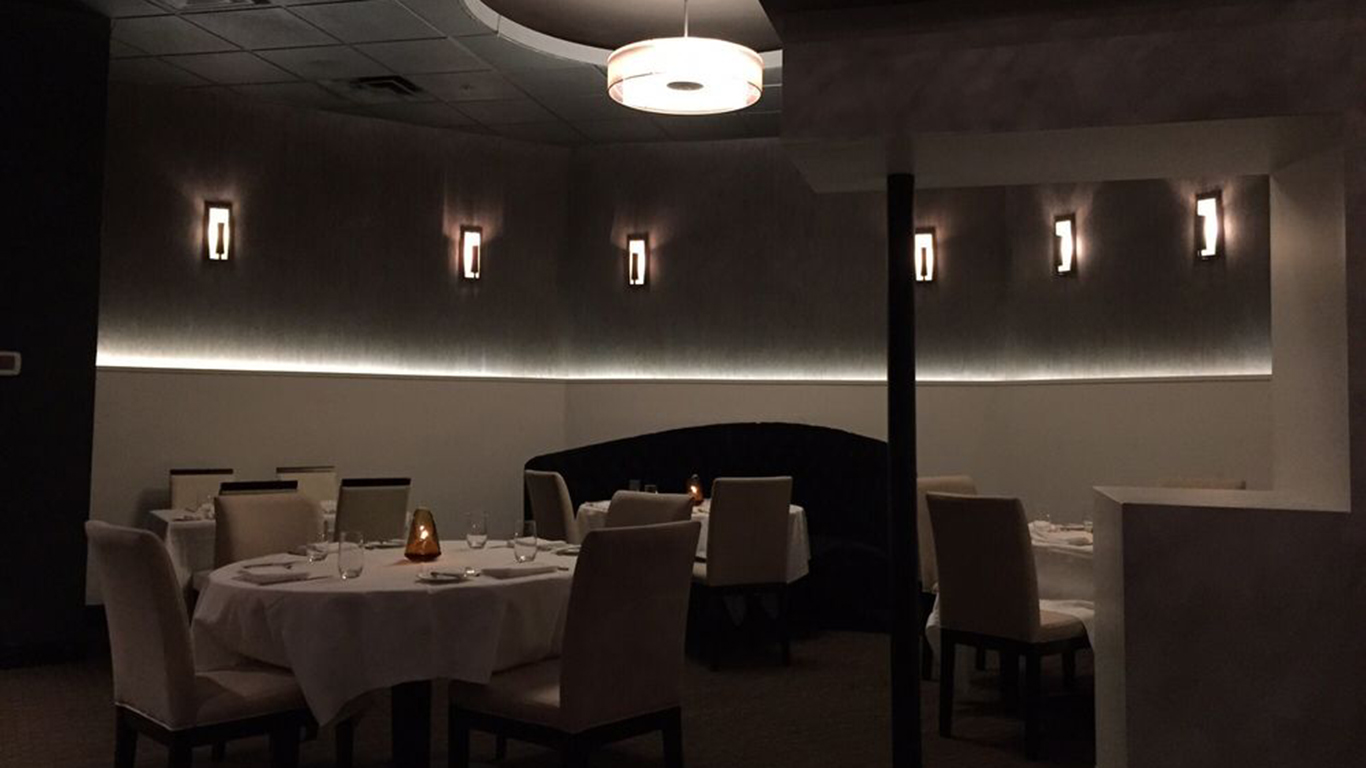
Baltimore, Maryland: Aggio
Popular “Top Chef” contestant Bryan Voltaggio closed his Aggio, a contemporary-style Italian restaurant, this year, citing no reason. The restaurant had been hailed by the Zagat guide as “innovative,” “notably different,” and having “all the right ingredients for a classy meal out,” and Baltimore Magazine called it “a foodie fantasy with creative compositions you won’t find anywhere else in town.” Voltaggio had closed his other Baltimore restaurant, Family Meal, in 2016. Another Aggio location, in Ashburn, Virginia, also closed in 2018. Voltaggio and his California-based brother, fellow chef Michael Voltaggio, have since opened Estuary, in the Conrad Washington, DC hotel. They also run Voltaggio Brothers Steak House at MGM National Harbor, just outside the nation’s capital, and Voltaggio Strfsh in Santa Monica.
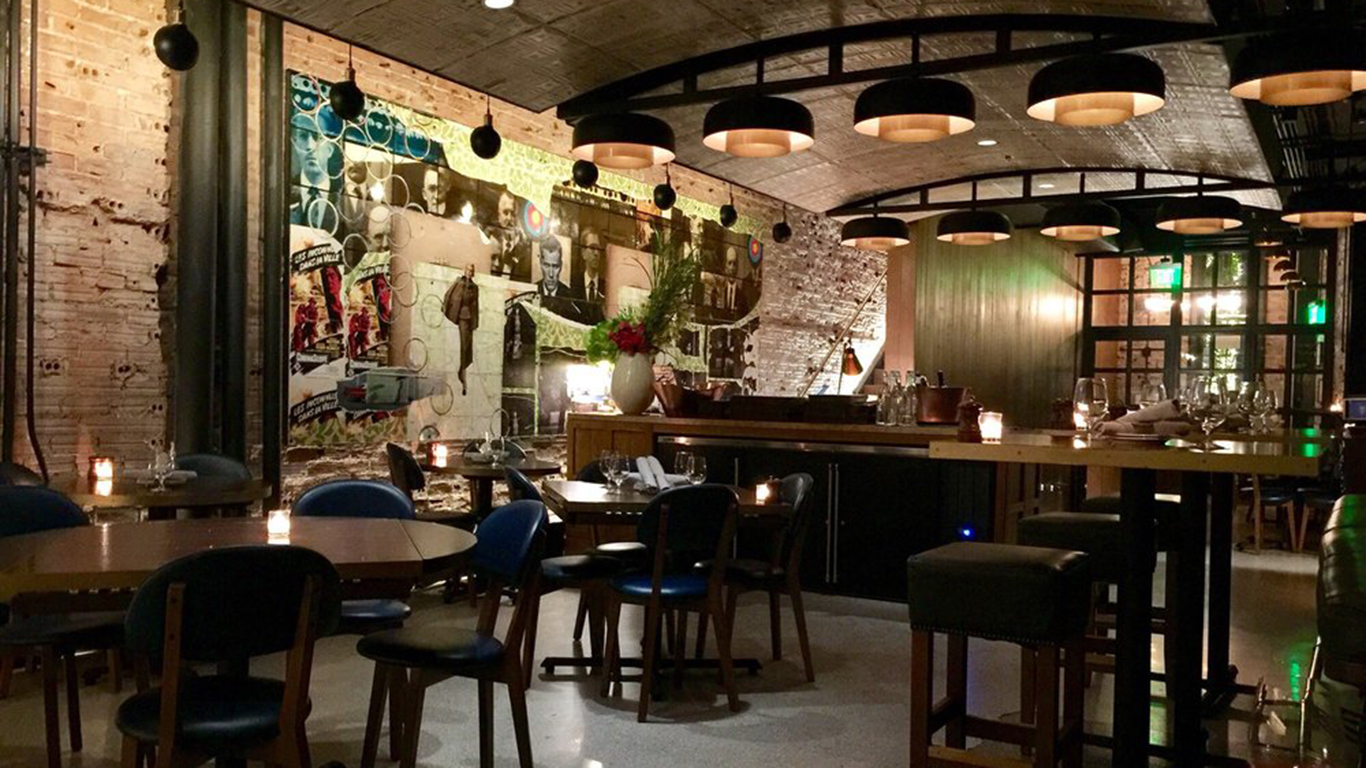
Boston, Massachusetts: Les Sablons
Garrett Harker — proprietor of Boston’s popular Eastern Standard, Island Creek Oyster Bar, and Row 34 — is known as one of the city’s more successful restaurateurs. That made the sudden closing, in the summer of 2018, of his year-old Les Sablons in Cambridge something of a shock to the local restaurant community. Harker gave no reason for the restaurant’s demise, but several analysts blame a recent spate of Boston closings on an oversaturated market. In May of this year, Harker launched Eastern Standard Provisions Company, selling “one-of-a-kind soft pretzels” are related products at supermarkets, restaurants, and breweries around New England.
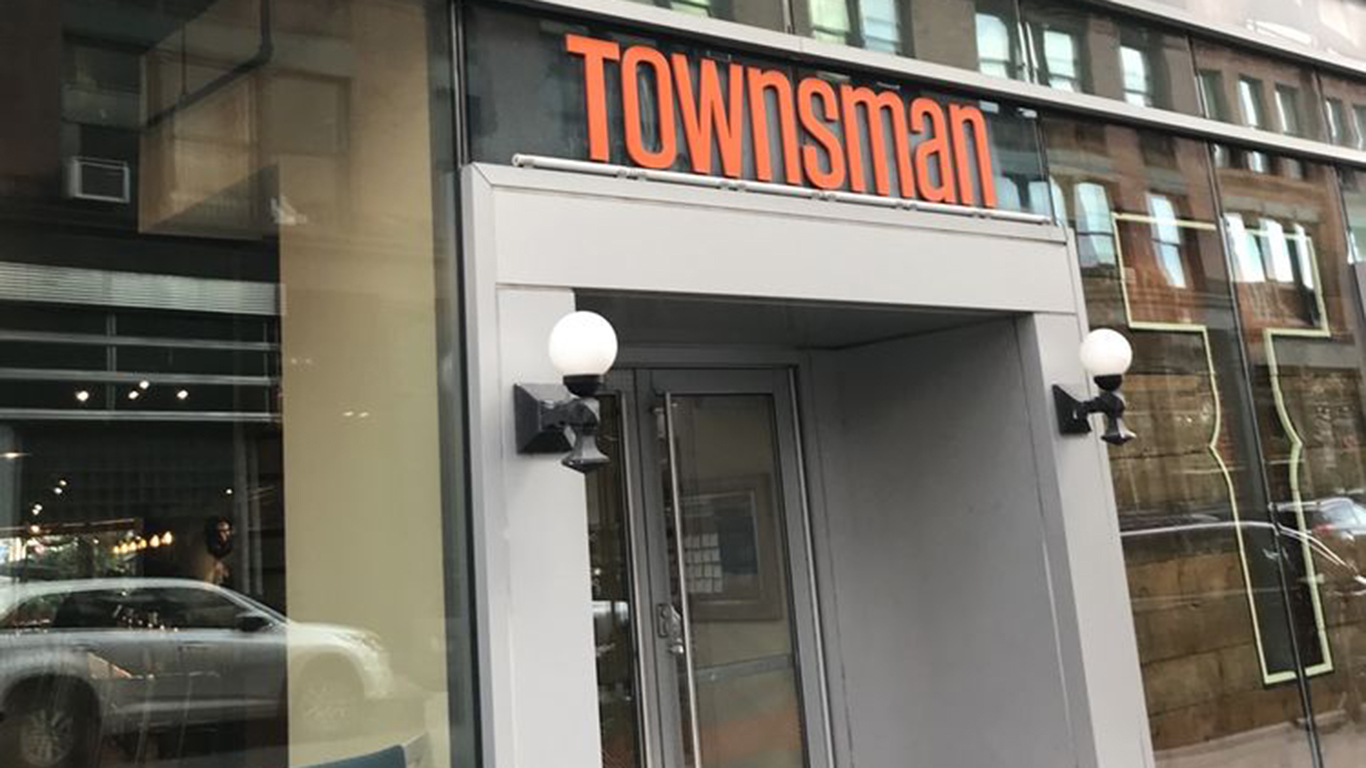
Boston, Massachusetts: Townsman
Townsman was named one of America’s best new restaurants in 2016 by Food & Wine, cited for its “good food…good ambiance,” and chef-proprietor Matt Jennings won a James Beard Award nomination. No reason was given for the closing but a Townsman Instagram post said that chef Jennings was “excited to craft a life that is more thoughtful, healthy and sustainable for himself and his family.” Jennings, who once weighed in at 400 pounds, managed to lose about half that weight, and told the Wall Street Journal late last year that he left his kitchen in part to be able to keep the pounds off.
[in-text-ad-2]
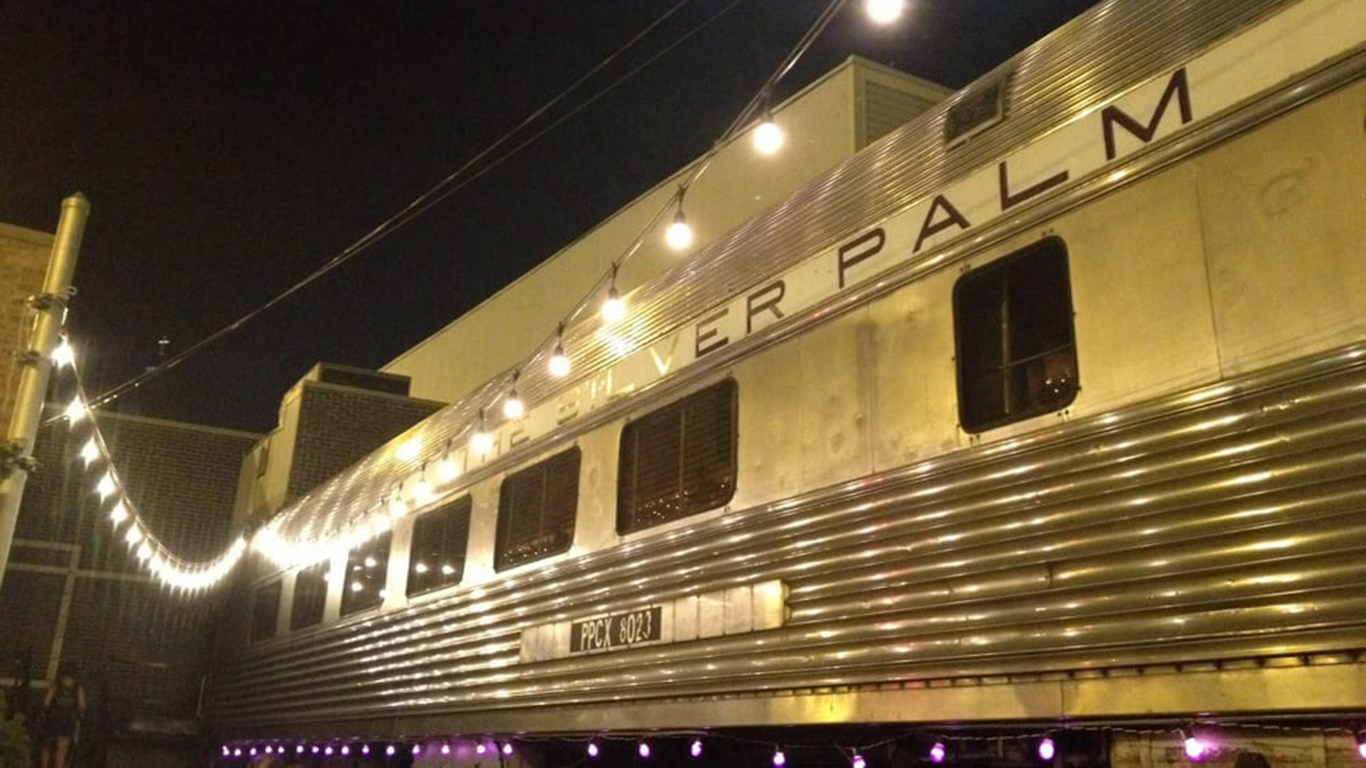
Chicago, Illinois: The Silver Palm
A modest diner housed in a 1947-vintage railway dining car, the Silver Palm came to national prominence after the late Anthony Bourdain visited the place in 2008 for his “No Reservations” TV show and sampled its Three Little Pigs sandwich. The influential TV personality declared the creation — composed of bacon, smoked ham, and a deep-fried pork cutlet, topped with Gruyère cheese, and two eggs — to be “the greatest sandwich in America.” The diner’s owners blame rapid changes in their neighborhood for their decision to close.
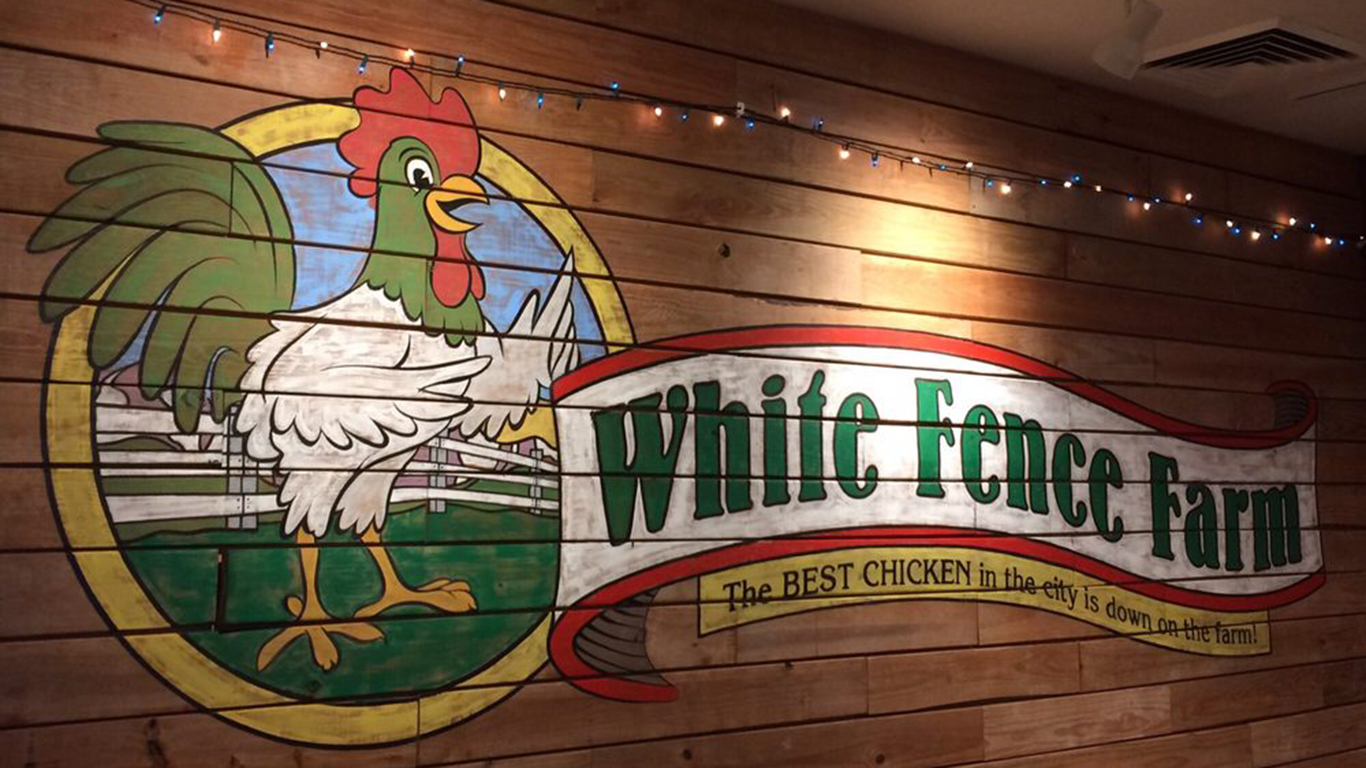
Denver, Colorado: White Fence Farm
Citing financial difficulties, this 45-year-old family destination restaurant in the Denver suburb of Lakewood (fried chicken, a petting zoo, and a year-round Christmas store are among the attractions) will close on December 30. The five White Fence take-out chicken locations around Denver shuttered in February.
[in-text-ad]

Las Vegas, Nevada: BarMasa and Tetsu
Celebrated sushi chef and restaurateur Masa Takayama — whose New York City sushi bar Masa is among the world’s most expensive restaurants (at $595 per person, not including drinks or tax) — has run the considerably less expensive BarMasa in Las Vegas’ Aria Resort & Casino since the property opened in 2009. In 2012, he added Tetsu, a teppan grill restaurant. Both closed upon the expiration of Takayama’s management contract on October 31.
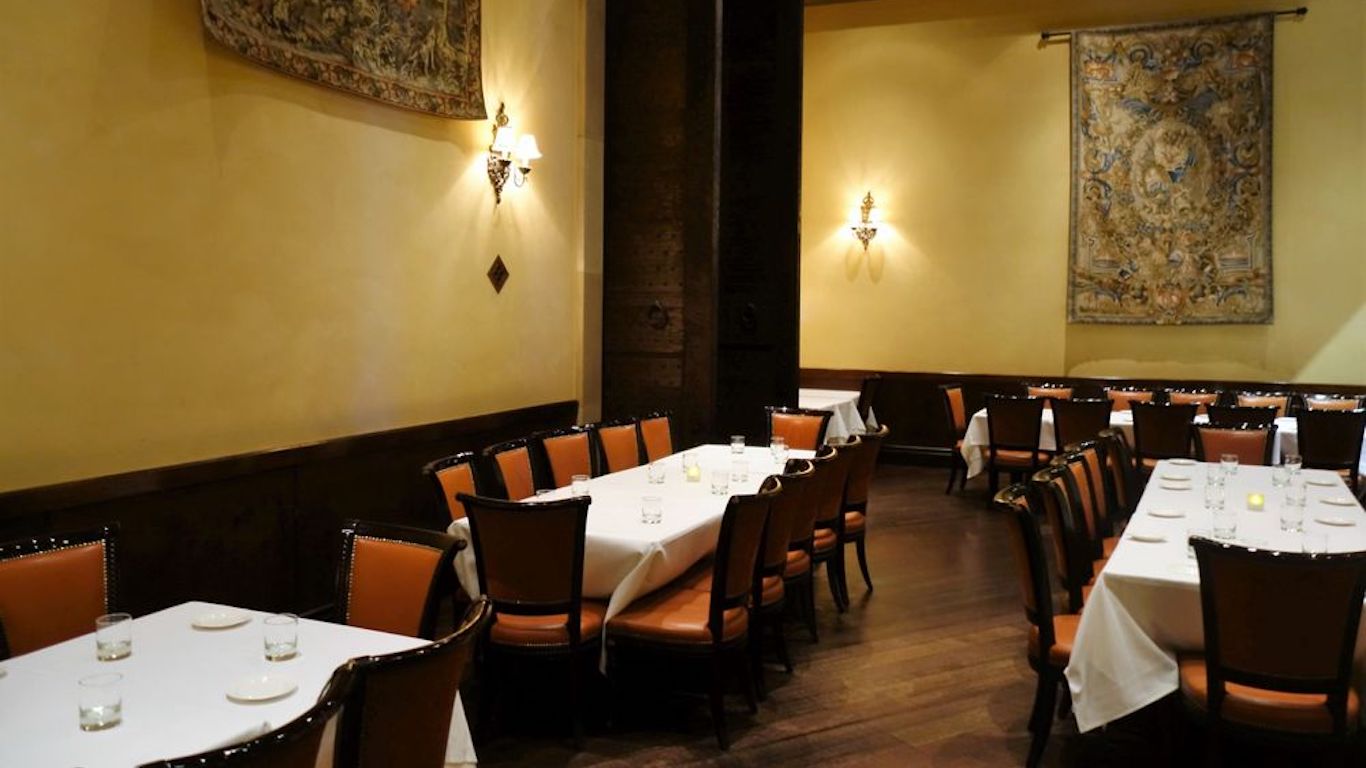
Las Vegas, Nevada: B&B Ristorante, Carnevino Italian Steakhouse, and Otto Enoteca e Pizzeria
These three 10-year-old Las Vegas establishments, formerly under the co-management of celebrity chef Mario Batali — with his former partner, restaurateur Joe Bastianich — closed in the summer of 2018, after Batali was accused of multiple instances of sexual misconduct. Batali’s and Bastianich’s La Sirena in New York City closed on Dec. 31 (Catch Steak now occupies the space). In March of this year, Batali dissolved his partnership with Bastianich and his family and sold his shares in the Eataly Italian market chain.
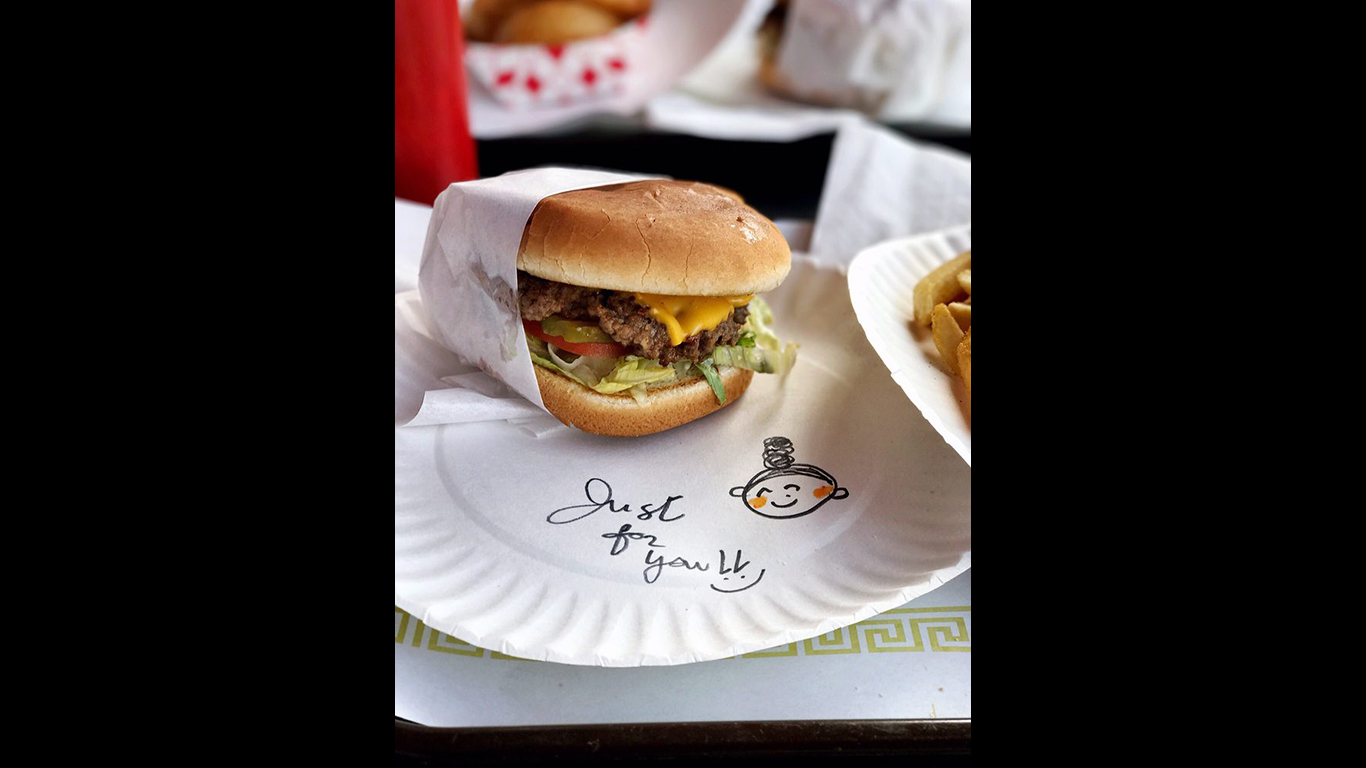
Los Angeles, California: Irv’s Burgers
This much-loved West Hollywood burger joint opened as Queenie’s in 1946, was purchased and renamed by Irv Gendis in 1970, and passed in turn to siblings Sonia and Sean Hong in 2000. (Sonia was famous for sketching caricatures of customers alongside the words “Just for you” on the paper plates she served the burgers on.) Along the way, Irv’s survived several attempts at demolition, and was finally forced to move a few blocks east in 2013. Sean died suddenly last year, though, and an impending rent hike finally did the place in. Irv’s closed in November.
[in-text-ad-2]
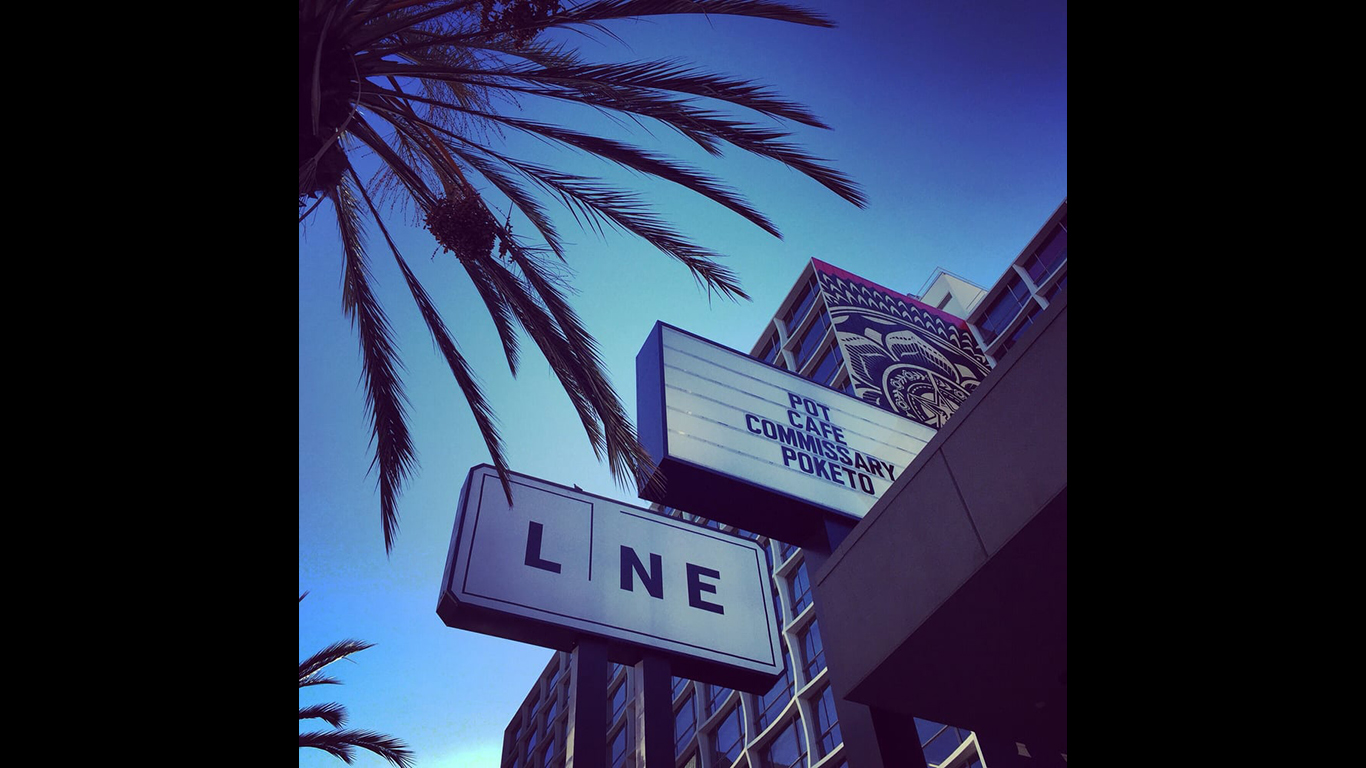
Los Angeles, California: Pot Lobby Bar, Pot Cafe, and Commissary
Korean-American chef Roy Choi’s Kogi food trucks virtually invented not only Mexican–Korean fusion food (think spicy pork and kimchi burritos) but the whole high-end food-truck movement. He subsequently sought to make his mark in L.A.’s vast Koreatown by opening three venues in the new Line Hotel in 2014: Pot, featuring Korean home cooking, a lobby bar, and a vegetable-centric greenhouse restaurant called Commissary. When pulling out of the hotel in June of 2018, Choi didn’t offer specifics, other than to note that the relationship between his company and the hotel group that runs the Line was coming to an end. He continues to oversee A-Frame in Culver City, and is currently serving menu items from his now-closed Chego rice bowl restaurant in temporary quarters, also in Culver City, while looking for a new permanent location. Earlier this year, Choi also opened Best Friend in the Park MGM hotel in Las Vegas.
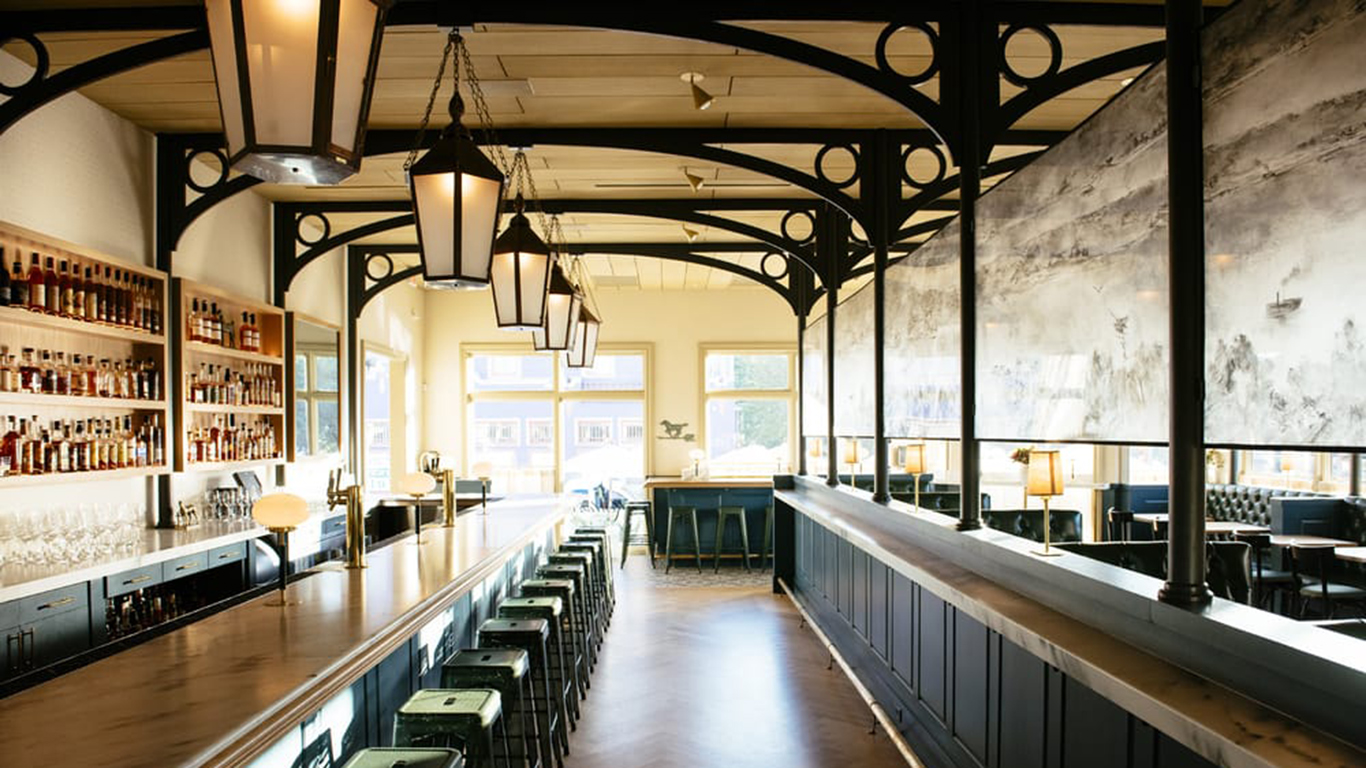
New Orleans, Louisiana: Kenton’s
Kenton’s, featuring a modern Southern-accented menu and a huge selection of bourbon, was opened in 2015 by Sean Josephs and his wife, New Orleans native Mani Dawes (the couple also owns New York City’s Tia Pol). It was well-reviewed, but, as Josephs put it, “we just weren’t meeting our financial goals,” and it served its last meal in March 2018. The space was taken over by Israeli chef Alon Shaya’s Saba.
[in-text-ad]
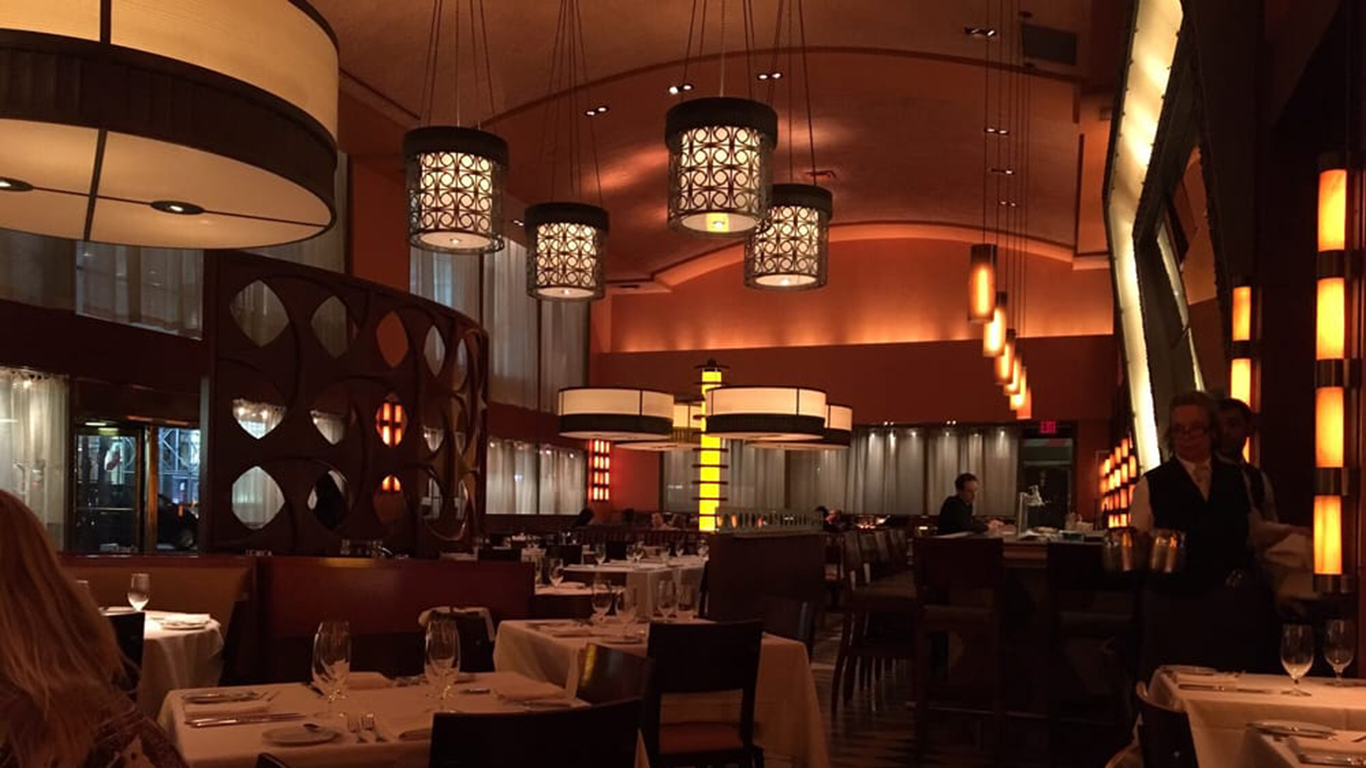
New York, New York: Bar Americain
Celebrity chef and TV personality Bobby Flay opened this American bistro in Midtown Manhattan in 2005. It got good reviews (New York Magazine called out its “satisfyingly two-fisted” menu), and thrived for 13 years, but in January of last year, facing a new lease and the need for “prohibitively costly” renovations, Flay and his partners pulled the plug. An outpost of Bar Americain remains open at the Mohegan Sun casino in Connecticut, and Flay still has a Spanish-inflected restaurant called Gato in Manhattan, in addition to Shark and Mesa Grill in Las Vegas; Bobby Flay Steak in Atlantic City; and locations of Bobby’s Burger Place in eight states plus Washington, D.C.
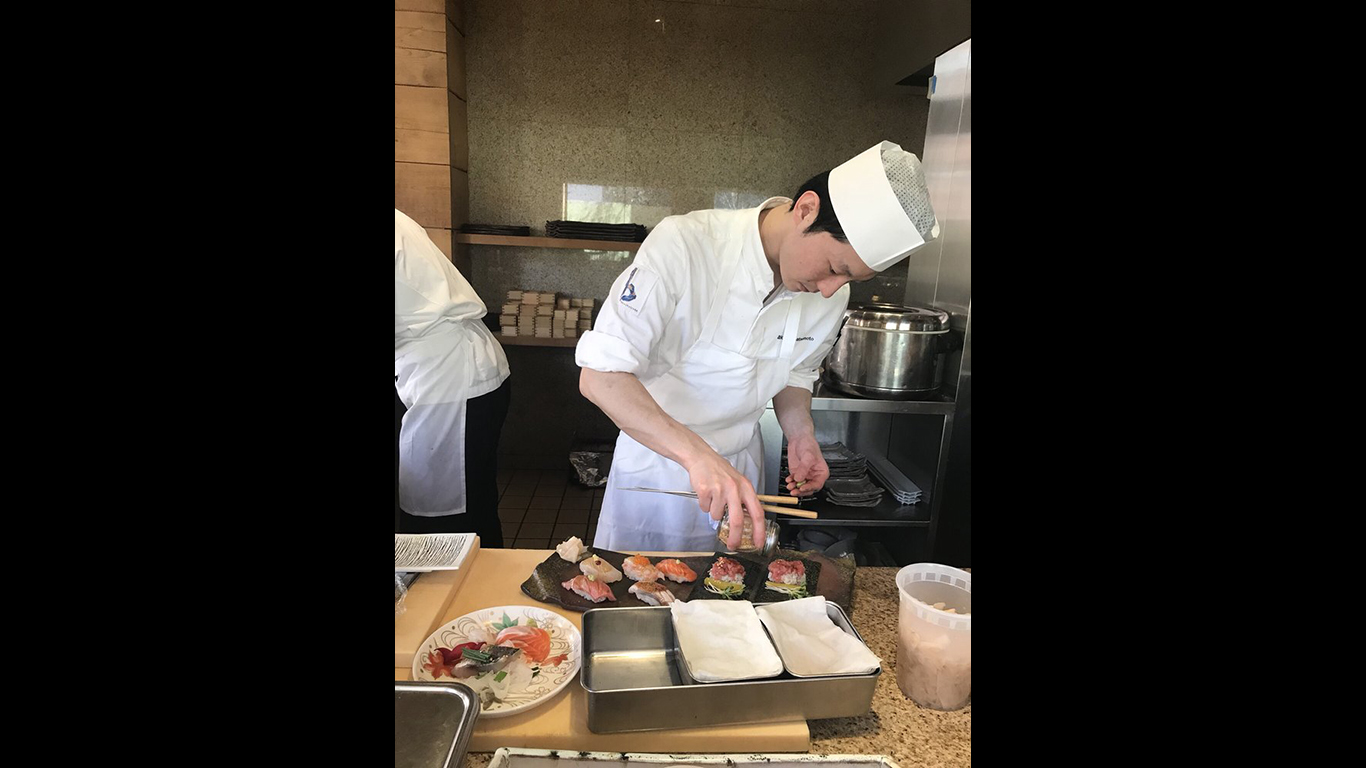
New York, New York: Brushstroke
One of New York’s best Japanese restaurants, a collaboration between chef David Bouley and Japan’s Tsuji Culinary Institute that opened in 2011, Brushstroke was noted for its Isao Yamada’s kaiseki menu (a progression of artfully presented small portions). An eight-seat sushi bar within the restaurant won two Michelin stars in 2014 but was converted to a noodle bar last year. Bouley bowed out of the restaurant earlier this year, and in September, Yamada announced that the place was closing due to an increase in rent.
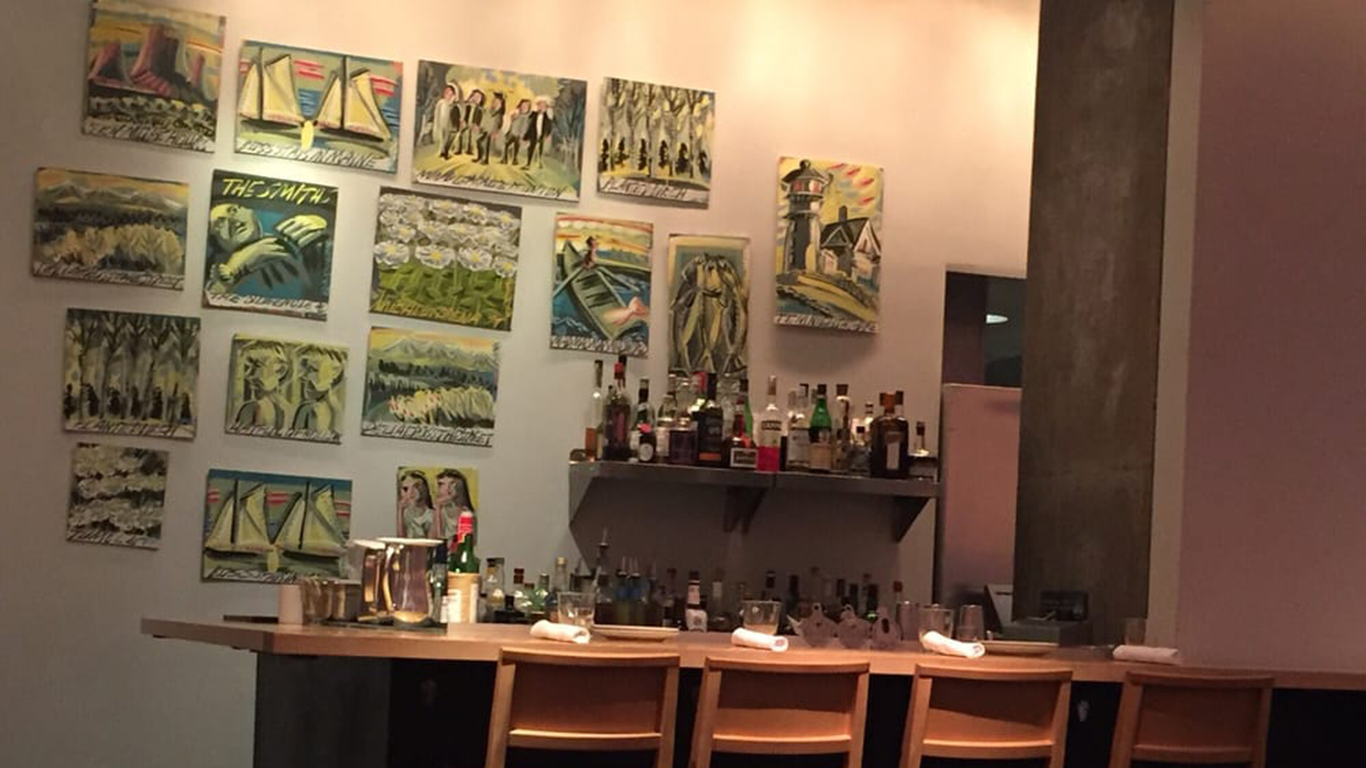
New York, New York: Ma Pêche and Fuku+
Influential Korean-American chef David Chang’s eight-year-old Má Pêche (“Mother Peach” in Vietnamese–French slang) and his adjacent fried chicken sandwich place, Fuku+, went out of business in June of 2018. Má Pêche never achieved the kind of popularity that Chang’s flagship Momofuku or his Ko or Ssäm Bar had. No definitive reason was given for the closing, but the restaurants were on West 56th Street, a block from Trump Tower, and in 2016, Chang tweeted “All the NYPD & Secret Service checkpoints killing restaurant foot traffic on 56th St.” Chang has hardly been resting, though. He is currently the proprietor of eight establishments in New York City, plus one each in Washington, D.C.; Los Angeles; Las Vegas; and Sydney (Australia) and two in Toronto.
[in-text-ad-2]
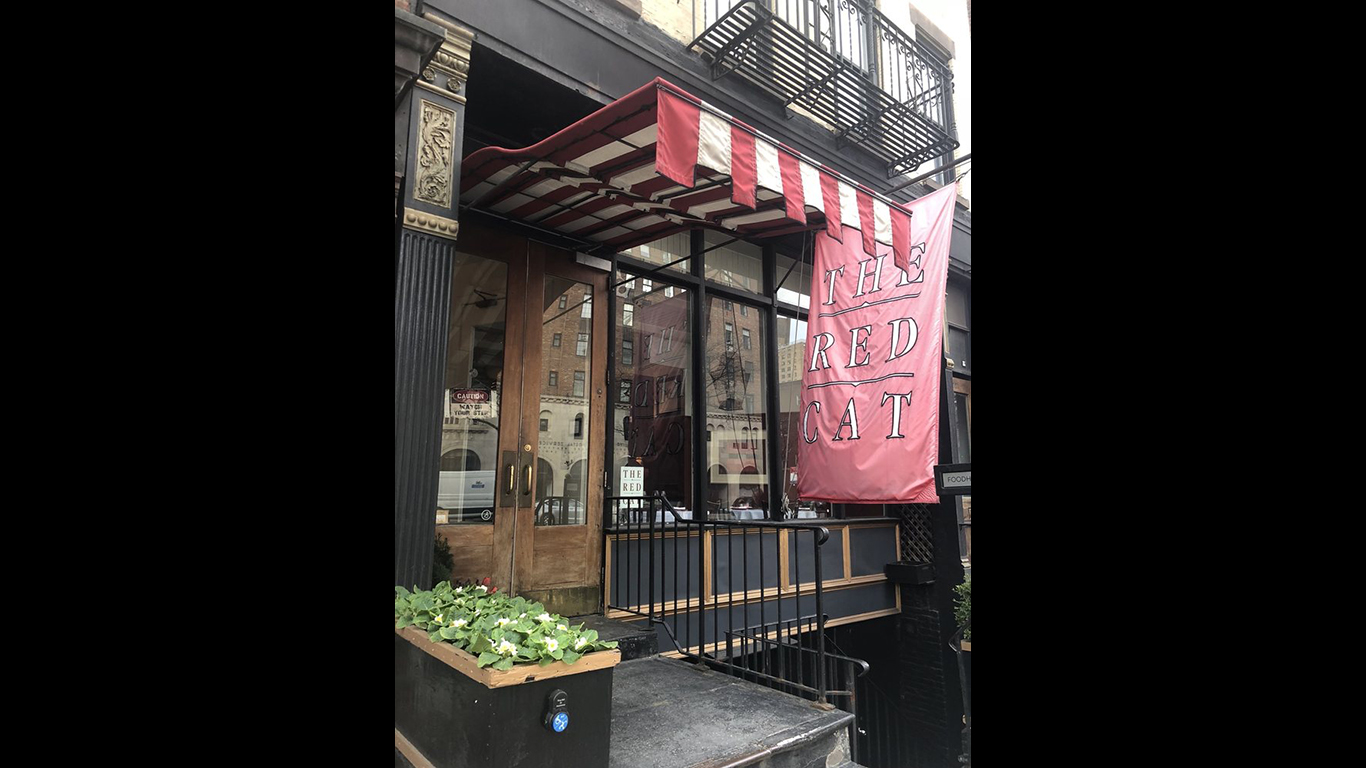
New York, New York: Red Cat
Manhattan’s Chelsea neighborhood was pretty much a restaurant wasteland when chef Jimmy Bradley and a partner opened Red Cat there in 1999, and the popular elevated park called High Line, which brought so much life to the area, was still an urban planner’s fantasy. The place became a local favorite for its unpretentious American food and its easy-going decor, which, Bradley told his architect, should suggest “New England goes to Paris, without a stop at Martha Stewart’s house.” The Red Cat is closing at the end of December, simply, says Bradley, because he’s ready for a change.
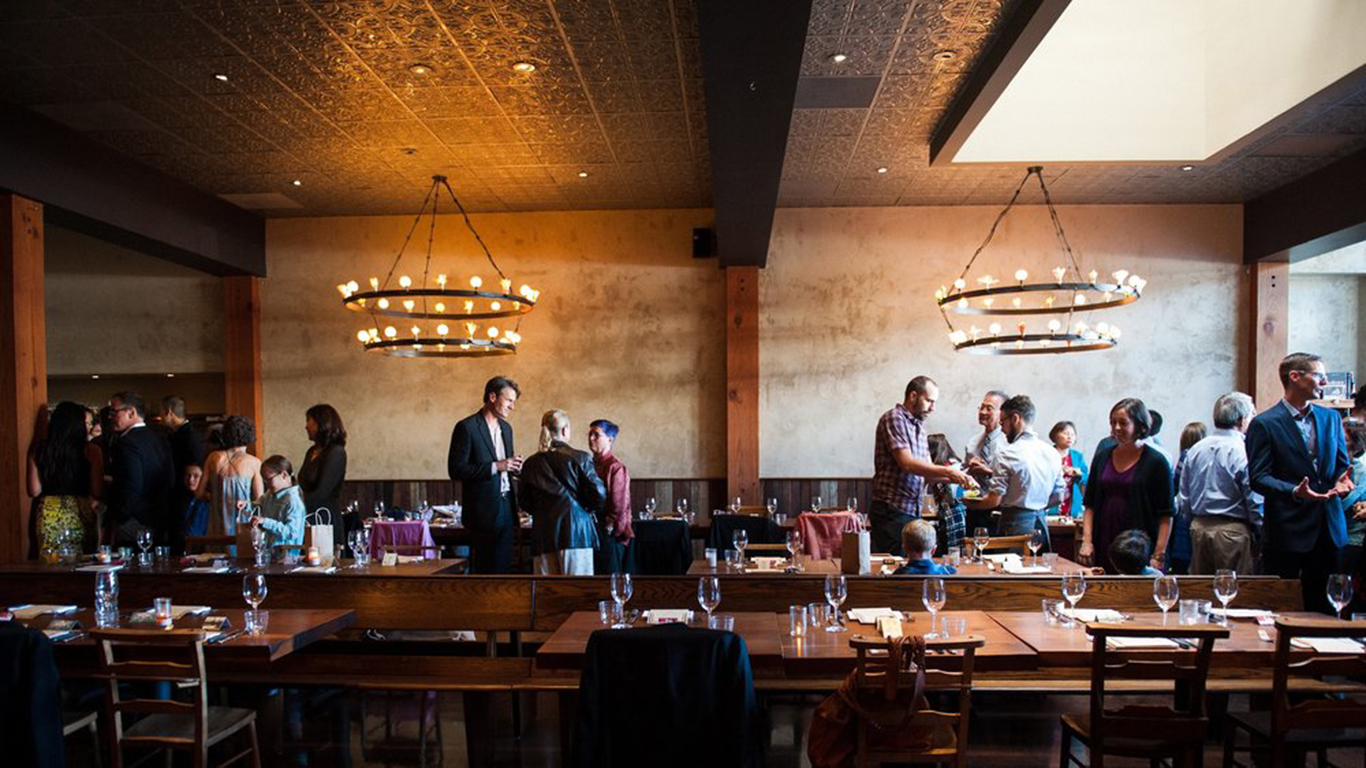
Oakland, California: Camino
Allison Hopelain and her husband, chef Russell Moore, both of whom are longtime veterans of the legendary Chez Panisse in Berkeley, California, opened Camino in 2008. The focus of the place was a huge wood-burning hearth along one wall of the open kitchen. Moore butchered whole animals, used organic produce, and made his own condiments. It was a lot of work. Moore told Eater last year that he had specifically designed his kitchen to “be difficult,” so he wouldn’t get bored. Five months after he said that, the couple decided that it had just become too difficult. Hopelain told Eater that they didn’t want to change anything at Camino to make it easier, so they decided to close down at the end of the year, “while we’re still in love with [the restaurant].” Hopelain and Moore had also opened a casual kebabs-and-flatbread place in Oakland, The Kebabery, in 2017. It remains open and this year the couple announced plans to launch a second iteration of the place in neighboring Berkeley.
[in-text-ad]
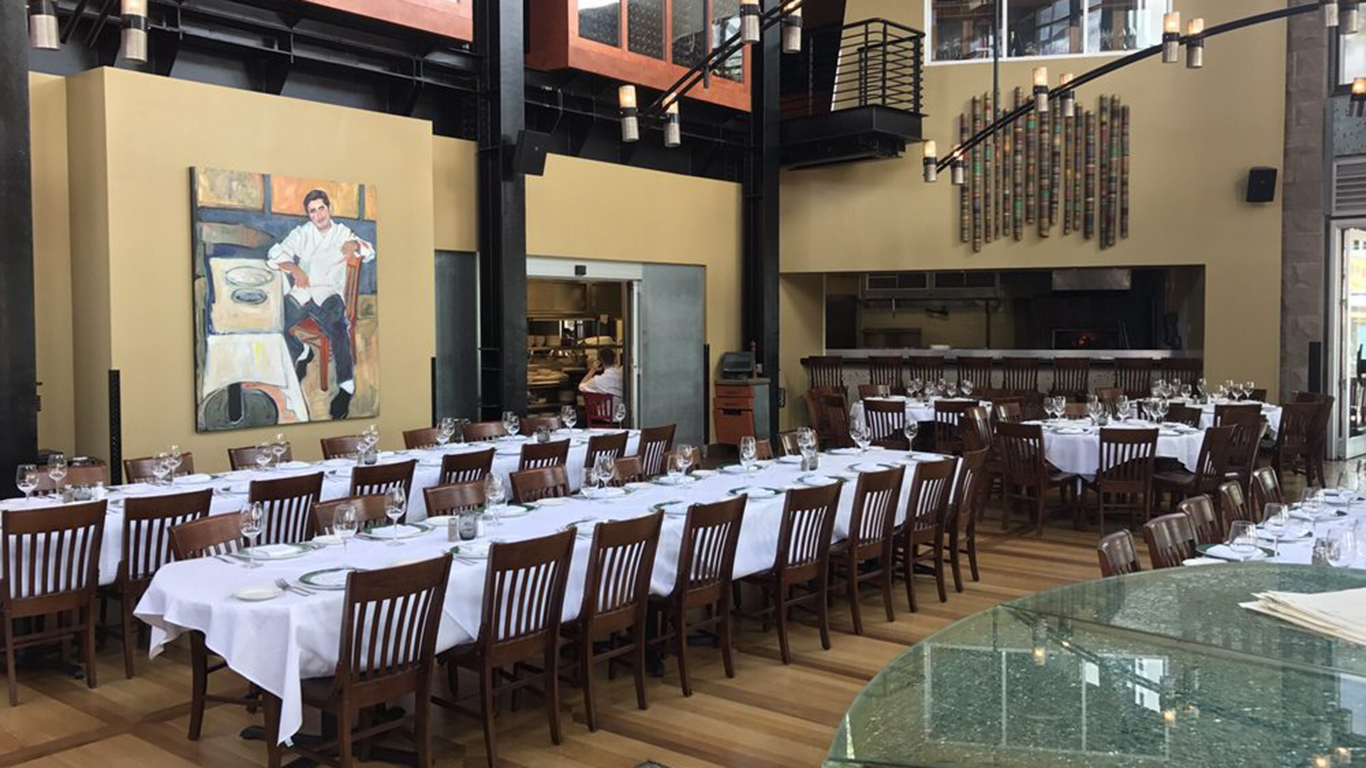
Orlando, Florida: Emeril’s Orlando
Celebrity chef Emeril Lagasse’s Orlando restaurant — which opened when CityWalk did, in 1999 — was an oasis of solid New Orleans-flavored food in the otherwise touristy Universal CityWalk complex (known for more generic eateries, like a branch of Margaritaville). It closed down in July. No reason was given for the closing.
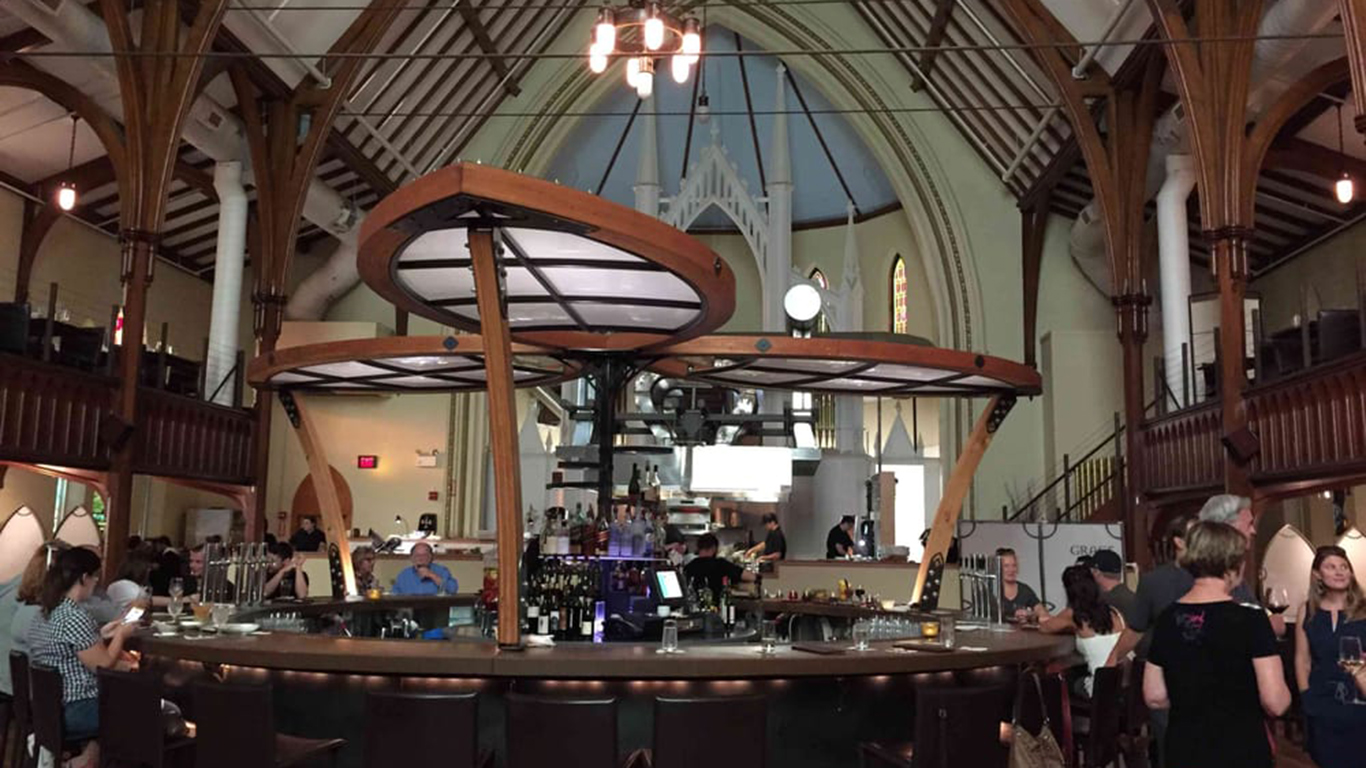
Portland, Maine: Grace Restaurant
The appropriately named Grace — it occupies a 19th-century Gothic Revival church — served its last regular meal on Dec. 31, 2018. In August, owner Anne Rutherford had announced that she was selling the building itself, which dates from 1856 and is listed on the National Register of Historic Places, but keeping the restaurant open. She later changed her mind, taking the church off the market and announcing that, as of 2019, it would be open only for weddings and other special events. Running the restaurant, Rutherford told the Portland Press Herald, “just became too much to do.” Rutherford continues to own Foreside Tavern in Falmouth, just north of Portland.
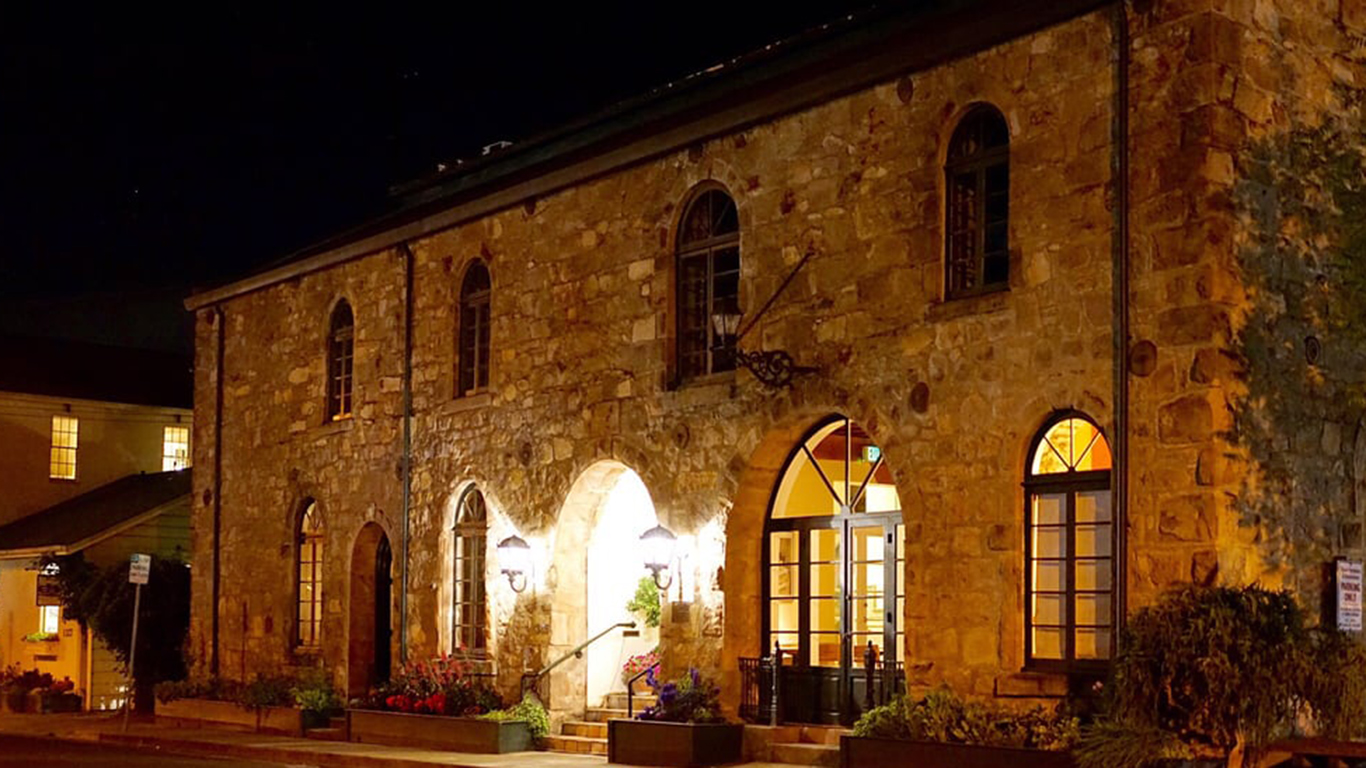
St. Helena, California: Terra
This 30-year-old Napa Valley institution served its last meal in early June. Owned by Wolfgang Puck veteran Hiro Sone and his wife, Lissa Doumani (whose father used to run the esteemed Stags Leap Winery nearby), Terra was widely praised and won a Michelin star. The decision to close was spurred by problems finding staff, the economic effects of last year’s wine country wildfires, and the fact that, as Doumani told Eater, “It just kept getting harder and harder, and we are getting older and older.”
[in-text-ad-2]
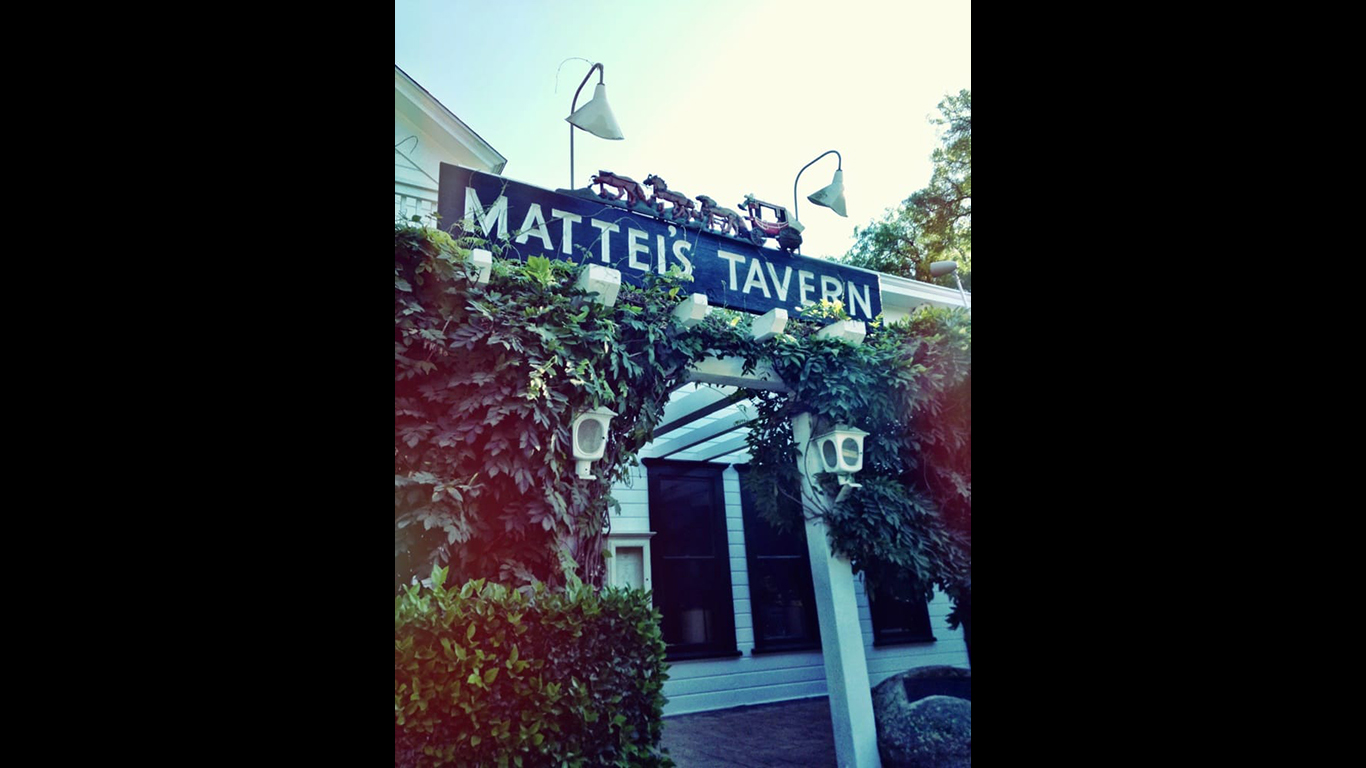
Santa Maria, California: Mattei’s Tavern
Mattei’s Tavern, in the heart of the Santa Barbara County wine country in California, was founded in 1886 as a stagecoach stop and regional railroad depot. Over the decades, and with various owners, it became a popular gathering place for local farmers, ranchers, and politicians, and later a convenient venue for a meal or a glass of wine for winery visitors. It closed several times along the way, shuttering again in 2016 when the then-owner businessman Charles Augustus Banks IV, was convicted of federal wire fraud. In December of 2017, and local chef Maili Halme — who had once worked at Mattei’s as a waitress — took over the kitchen. Her tenure was not successful, and in June of last year, the property’s new proprietors made the decision to close the place again. The historic on-again, off-again establishment probably isn’t finished, though: A statement on the Mattei’s website reads “We expect to reopen in 2021 while we continue to restore and enhance this beautiful historical property. We look forward to bringing you an unforgettable hotel and dining experience in the near future.”
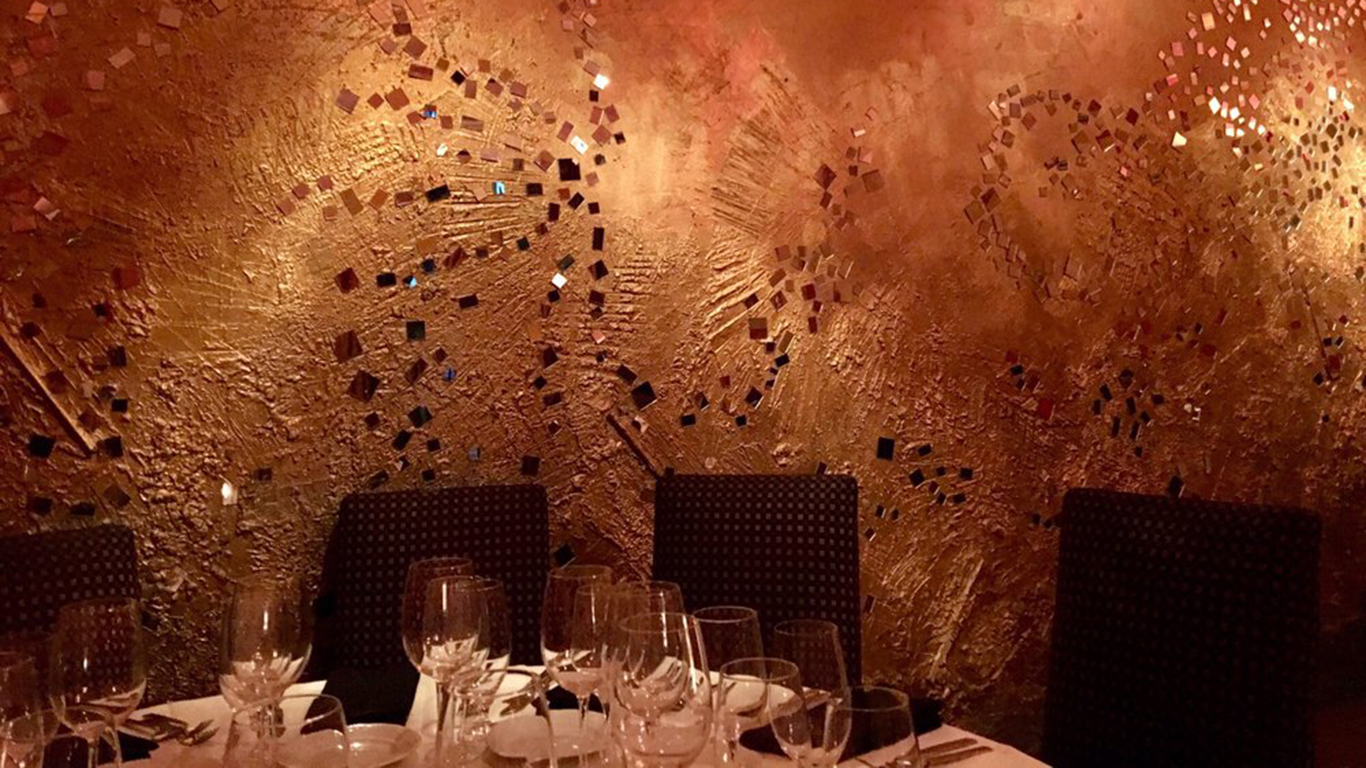
Santa Monica, California: Valentino
When Sicilian-born restaurateur Piero Selvaggio and a chef partner opened Valentino in 1972, almost nobody in America had ever heard of radicchio or arugula; there was no bufala mozzarella (much less burrata) here; and balsamic vinegar was unknown. With few exceptions, Italian restaurants were furnished with straw-wrapped Chianti bottles and red-checkered tablecloths, and melted cheese and tomato sauce figured heavily (in more ways than one) on the menus. As Valentino evolved over the years, it introduced a whole new standard of Italian dining to America, both more authentically rustic and more elegant, and he had nationwide influence. The decision to close the restaurant on Dec. 31 last year came about gradually, Selvaggio says, but economic issues contributed. This year, in partnership with veteran restaurateur Ron Salisbury, Selvaggio opened Louie’s by the Bay Pasta & Carne in Newport Beach.
[in-text-ad]
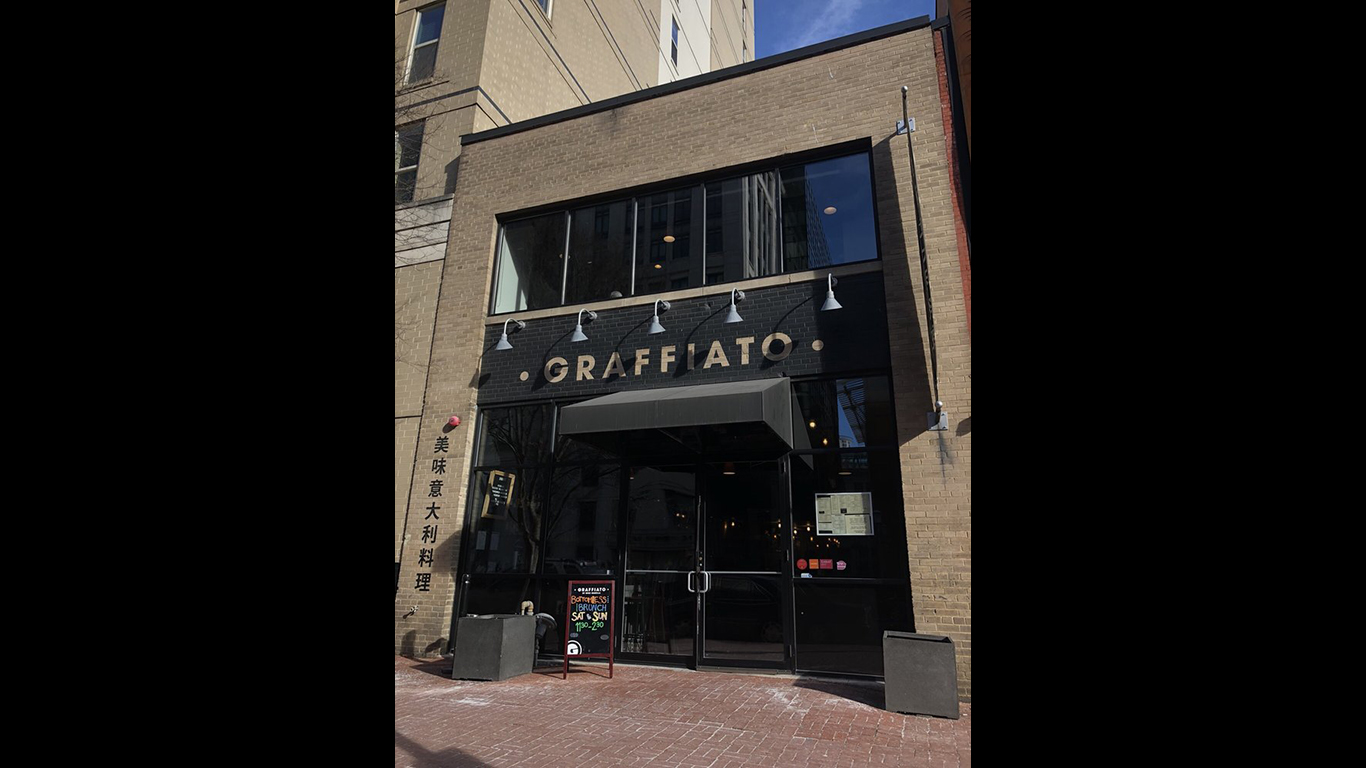
Washington, D.C.: Graffiato
Onetime “Top Chef” star Mike Isabella’s first-ever restaurant, Graffiato, opened in 2011. It was the start of a $40-million dining empire, encompassing about a dozen restaurants and airport and stadium kiosks, with more on the way. Following allegations of sexual misconduct against him — including a lawsuit by a former restaurant manager accusing him of “extraordinary sexual harassment” — his businesses began to fail. Beyond these issues, observers say that Isabella’s empire simply grew too fast. He has closed a number of his operations, including a Graffiato spinoff in Richmond, Virginia, and in July last year, apparently as a result of a rent dispute, he shuttered his flagship. He is now working as a co-chef and consultant at Blasé Bistro and Martini Bar in Sarasota, Florida.

Washington, D.C.: Marcus
Esteemed Ethiopian-born, Swedish-raised Harlem chef-restaurateur Marcus Samuelsson opened Marcus, in the elaborate new MGM National Harbor resort complex adjacent to Washington, D.C., in 2016. The restaurant received lukewarm reviews and failed to find its audience. It served its last meal in early January of last year. In a prepared statement explaining the demise of Marcus, Samuelsson cited “changes in creative direction and strategy they wish to make at MGM National Harbor” as the cause. In addition to his flagship Red Rooster Harlem and a brasserie at JFK airport, the chef-restaurateur also has restaurants in London, Montreal, Bermuda, Chicago, Newark, and throughout Scandinavia.
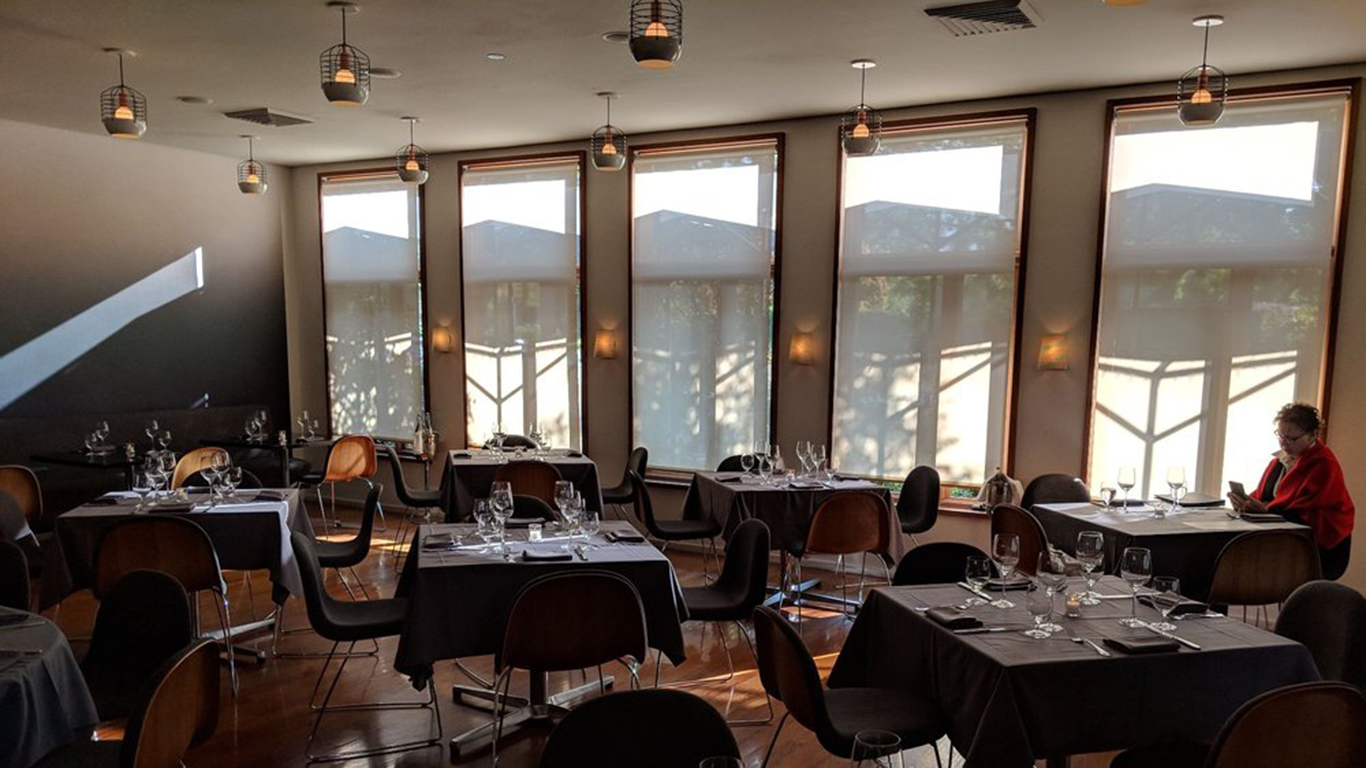
Yountville, California: Redd
Chef-restaurateur Richard Reddington, a veteran of Spago and other noted California restaurants, opened Redd in 2005 as a kind of low-key alternative to Thomas Keller’s nearby French Laundry — a more casual wine country dining destination. It was considered one of Napa Valley’s best and most influential restaurants, but, citing staffing issues and a desire to spend more time with his family, Reddington closed the place in early October last year. He continues to run Redd Wood, a Napa Valley pizzeria, and last summer opened an East Coast version of Redd in his former hometown of Rochester, New York.
Take Charge of Your Retirement: Find the Right Financial Advisor For You in Minutes (Sponsor)
Retirement planning doesn’t have to feel overwhelming. The key is finding professional guidance—and we’ve made it easier than ever for you to connect with the right financial advisor for your unique needs.
Here’s how it works:
1️ Answer a Few Simple Questions
Tell us a bit about your goals and preferences—it only takes a few minutes!
2️ Get Your Top Advisor Matches
This tool matches you with qualified advisors who specialize in helping people like you achieve financial success.
3️ Choose Your Best Fit
Review their profiles, schedule an introductory meeting, and select the advisor who feels right for you.
Why wait? Start building the retirement you’ve always dreamed of. Click here to get started today!
Thank you for reading! Have some feedback for us?
Contact the 24/7 Wall St. editorial team.
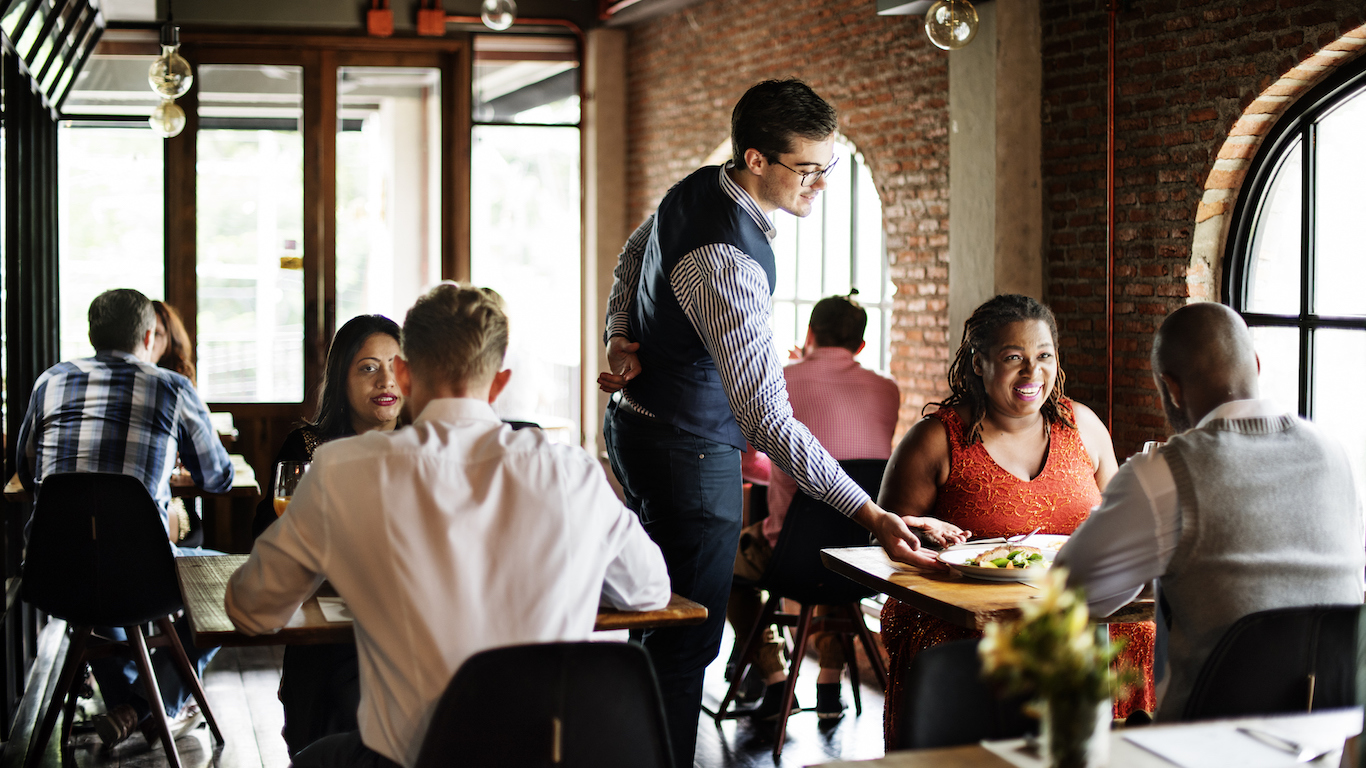 24/7 Wall St.
24/7 Wall St.

